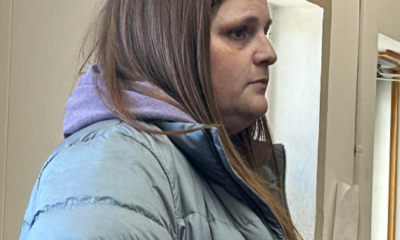Welcome to Hollandy
By: Sarah Aarssen
Stop me if you’ve heard this one. What do you get when you take a girl from Mapdot, Illinois, add in one tall Dutch man, mix with a study-abroad program gone off course, throw in an extremely throaty language, a baby and seven years into the mix?
Did you guess?
You get ME, Sarah Aarssen! I’m a thirty-four year old woman who grew up right there in Gillespie, Illinois. I went to high school in Highland and did what almost every other kid did – I played softball. I fought with my sister. I cruised around town as a teenager. I worked as a dishwasher in nursing homes (yes, plural) and at a Walmart. I was a pharmacy technician at Walgreens and finally decided it was time to grow up, go to college, and figure out what I wanted to be, at twenty-five years old. I enrolled at SIUE, and my sophomore year I decided I needed to spread my wings and fly… to the University of Wales, Swansea, for an entire semester.
We’ll skip the part where I had never flown before, didn’t own a passport, couldn’t find Wales or Amsterdam on a map to save my life, and had no interest in getting married… ever. We’ll fast forward right to the point where I met my Marco (Did you say “Polo” in your head? I thought so.) one random Valentines Day night in Amsterdam, The Netherlands in 2004.
I have limited space so I’ll give you the quick rundown of how it all came to be. I was out with my single college friends, needed a light, asked the first person I saw, struck up a conversation, he introduced me to his cousin, Marco. (Polo!) He pinched my butt, I kind of liked it, the pincher offered to take me to a club, I ditched my friends, he kissed me, we danced all night, we had a junkie charge us 5 Euros for a Polaroid, we ate shoarma, we stayed out until 6AM. We exchanged email addresses. I went back to college (Wales, remember, different country) on a fourteen hour bus ride, very hung over and slightly smitten. He emailed, he came to Wales, spent five days together, he went home. April rolled around, I flew to Amsterdam, “tax day” he asked “the question,” I said YES (quickly, do the math, that was April 15th, two months after we met). May came, my semester ended, I kissed my new-found Welsh, Aussie and American friends goodbye and flew back… to Amsterdam. Mom and sisters said, “How romantic!” Dad and brother said, “Come home!” June arrived and we did fly “home.” He met my family. Dad and brother didn’t kill him. I collected my things and started my new life, which I like to refer to as “Hollandy.” It’s not all Dutch, it’s totally not Illinois, it’s just kind of, you know, Holland-y.
The BenGil Post has given me the unique opportunity and medium to be able to share some of my crazy adventure with you. What’s it like living in a foreign country, speaking (or spitting) a foreign language, and having your family an ocean away? Almost seven years into it, and I’m still trying to figure it all out, but I do have a couple of clues.
Let’s begin.
Have you ever heard the Dutch language? If not, please, go to Walgreens, stand next to the cold and flu section and listen. Hear that phlegmy cough from the guy standing next to you? That’s not an illness. That’s Dutch. It was unlike anything I’d ever heard before, but I was living in the country and I was determined to learn the language.
Two weeks into my Hollandy, life I decided that if I was going to tackle the Dutch language, I needed to fully immerse myself in the culture. This could be done in a plethora of ways, my natural choice, watching Dutch television. I flipped through the channels until I found something that had the potential of being semi-interesting. I sat diligently watching for fifteen minutes, waiting for Marco (You didn’t say “Polo” again, did you?) to come home from work so I could impress him with my determination. Finally, my moment to shine arrived. He came home, walked over to me and gave me a kiss. I smiled proudly and turned my focus back to the television as I waited for him to comment on my choice of TV programs. He took notice rather quickly and then he politely asked, “Why are you watching the German channel, schatje?” Dutch lesson number one: epic fail.
But what about finding a new job, new friends, new doctor? How do you find health insurance or the post office? How do you avoid giving birth at home, like 33% of Dutch woman do, if you really, and I mean REALLY, do not want to? How do you raise a bi-lingual baby? How do you cope? How do you adjust? How do you survive?
I’m looking forward to sharing my answers, experiences and more in my next guest article!
Share this story
Comments
comments

 Community News3 weeks ago
Community News3 weeks ago
 Community News4 weeks ago
Community News4 weeks ago
 Community News4 weeks ago
Community News4 weeks ago
 Police News4 weeks ago
Police News4 weeks ago














